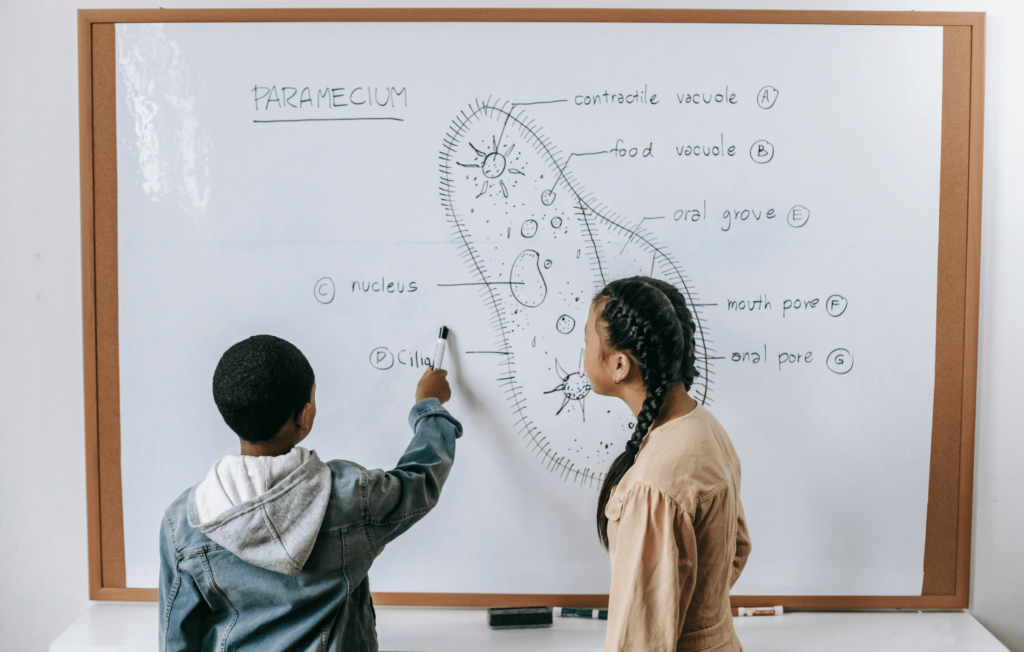Essay’s due tomorrow, but there’s soccer practice tonight. If I miss practice, I won’t be able to play in the game this weekend. The essay can wait… plus, I’ll have plenty of time to get it done when I get home.
*three hours later*
I’m home, now it’s time to start this essay… But I can’t find my textbook. This room is too messy and I can’t waste any more time, so I’ll have to just use my notes. The clock is ticking, and I can’t focus because I’m too tired. My handwriting is sloppy so I can’t read my notes anyway. I’m really disappointed in myself, but I’ll have to just turn in what I have.
Whew, that was chaotic.
Yet, you probably could relate to at least one of those problems. The stress of having too much on your plate, working in a disorganized environment, or a lack of proper planning and prioritizing will contribute to these challenges. But it’s actually a common predicament to be in because to overcome these obstacles, you need to have something called, “executive functioning skills.”.
Executive functioning is defined as, “a specific set of attention-regulation skills involved in conscious goal-directed problem solving.” Simply put, executive functioning is a mental process that controls the actions and behaviors we apply when completing tasks and fulfilling goals.
Three core functions control our executive functioning skills.
- Cognitive flexibility: approaching problems through multiple perspectives
- Working memory: processing, storing, and using information
- Inhibitory control: managing impulses and emotions
These three functions work together to complete daily tasks, like paying attention to your teacher, organizing your binder, and doing your homework. And if you ever find yourself struggling in any of these areas, it’s okay! Your body doesn’t fully develop these skills until you reach your mid-20s.
Rest assured, your body was built to learn! You have been developing these skills since your first days on Earth. Think about when you were a baby, and you first learned to talk and follow directions. You needed to use your working memory and self-control to meet those critical milestones. The same holds true now. And while your executive functioning skills are still developing, you can continue strengthening them now.
How do you do that?
Unsurprisingly, you don’t automatically get a toolbox filled with tips and tricks to help you work through problems with clear judgment and emotional control. You have to learn these strategies and put them to the test through everyday experiences. This is true for every type of student, regardless of what you think your strengths and weaknesses are.
Let’s look back at the scenario above, for example.
What could the student have done differently to improve their executive functioning? For starters, they most likely knew their soccer practice schedule and upcoming assignments well in advance. By looking over their schedule at the beginning of the week and better planning when to factor in school work, they could’ve had more time to do the essay.
Strategy #1: Prioritize. Make a list of priorities in both your academic and social life. Designate times for both and even set reminders in your calendar to help stay on track.
The student couldn’t find their textbook so clearly they need to work on their organizational skills. If they had a shelf for their books, a clutter-free desk to work on, and a neat binder to review their notes, they would have made better progress.
Strategy #2: Stay organized. The best practice is to designate a work area, preferably one that isn’t the same place you relax. Wherever you designate as your workspace, ensure that the area is clear and only has the materials you need for your assignment. Eliminate any distractions around you and keep any supplies you may need, like a calculator or a water bottle, within reach.
The student decided to refer back to their notes to complete the assignment. That can be useful, but only if they are effective with their note-taking. Sloppy notes that provide little to no context to the assignment won’t be much help.
Strategy #3: Take good notes. When recording information for your notes, less is more. You don’t have to write down everything, so try to eliminate information that isn’t necessary. Put things in your own words, so you have a better understanding of the subject at hand. Also, use a highlighter or post-it flags to showcase essential information.
The student eventually gave up from exhaustion and the overwhelming feeling of beating the clock. That’s because by the end of the day, their focus and productivity have diminished. To make more efficient use of their time, the student must work at a time when their brain is at peak mental sharpness.
Strategy #4: Identify the relationship between your body clock and your productivity. Are you an early bird or a night owl? Do you have a busy morning or can you start your tasks later in the day? After you determine when you are most alert and focused, save more challenging tasks for those times, making sure to allow yourself breaks in between.
The student was able to attend soccer practice but couldn’t sustain enough focus and attention to do the less desirable task of completing their assignment. They procrastinated starting the essay and became frustrated after not completing it. This is a result of low self-regulation, which “allows children to engage in learning activities, focus and maintain attention, suppress emotional and behavioral impulse responses, and engage in positive social interactions.”
Strategy #5: Improve self-regulation. Think about the way you approach different situations. What actions lead to unfavorable outcomes? Being self-aware and taking responsibility is an essential part of improving self-regulation. Try to recall instances when you had difficulty managing your emotions and write down alternative ways you could have handled those situations, so you are better equipped to face them in the future.
These five strategies are just the start towards becoming a highly-functioning young adult. There are several other ways to acquire more of these essential skills and apply them to different circumstances in your academic and social lives. Check out our learning to learn resource to explore additional strategies for improving your working memory, critical reading, active listening, and much more!



